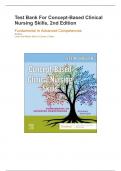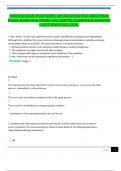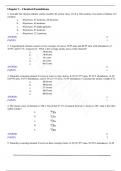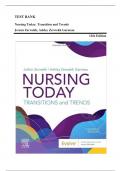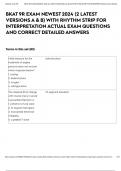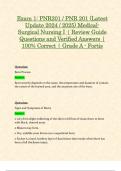Exam (elaborations)
Test Bank For Concept-Based Clinical Nursing Skills, 2nd Edition Fundamental to Advanced Competencies Authors Loren Nell Melton Stein & Connie J Hollen All Chapters Covered.
- Course
- Nursing
- Institution
- Alabama State University
Master Clinical Nursing Skills with the Ultimate Test Bank! Unlock your full potential in clinical nursing with the Test Bank for Concept-Based Clinical Nursing Skills, 2nd Edition by Loren Nell Melton Stein & Connie J. Hollen. This comprehensive test bank covers all chapters from fundamental to...
[Show more]
